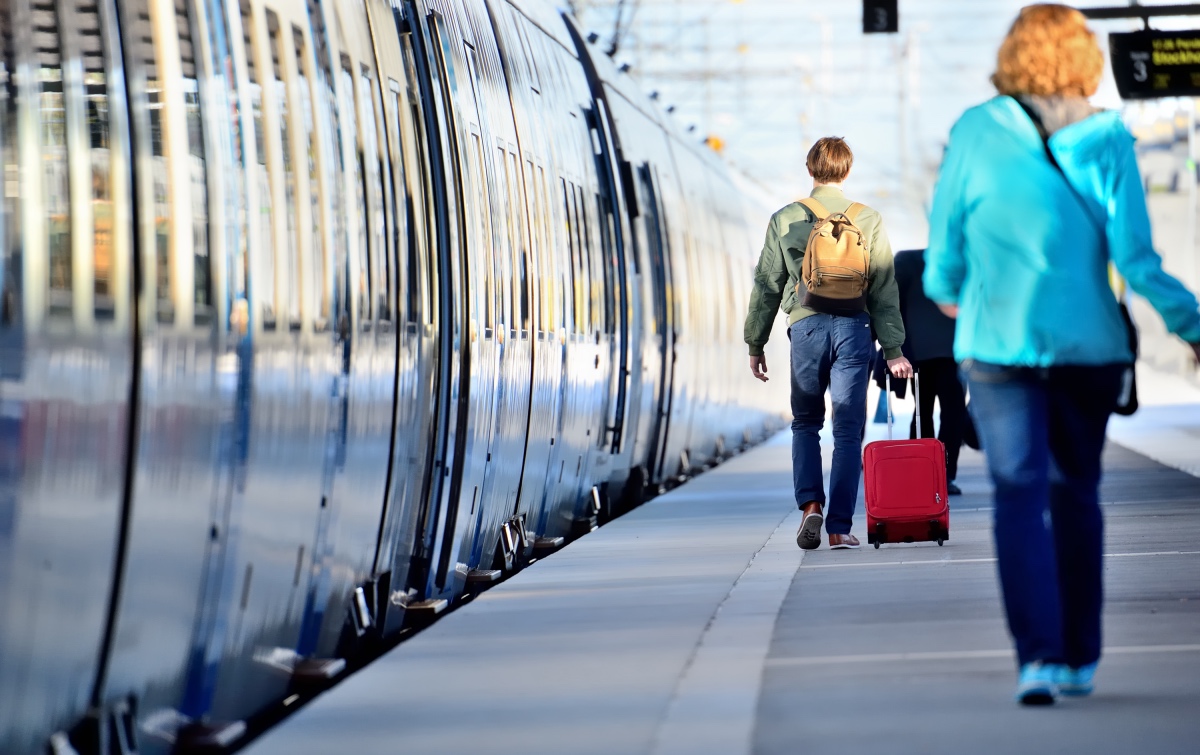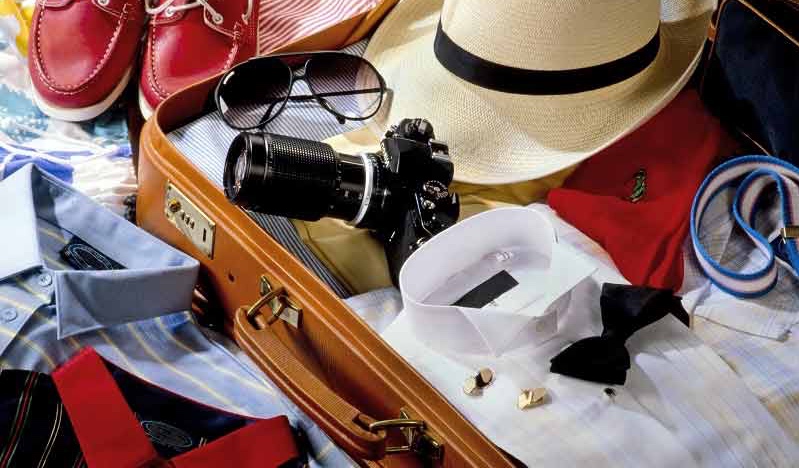
Travel Safe: Tips for trouble-free travel in Italy
Though Italy is no more dangerous to visit than any other place in the world, crime still happens, especially of the petty variety. You’re more likely to get your purse snatched by a young hooligan on a scooter than be the victim of a violent crime. Staying safe simply takes a little awareness and vigilance — here’s what you need to know.
Part One: Before you go
Buy travel insurance
Unless you’ve got medical insurance that covers you while out of the country, it’s a good idea to invest in travel insurance. This is especially true if you are doing any sort of physical adventure tourism such as skiing or bike tours.
If you are bringing expensive equipment with you (cameras, bikes, etc) you might also want to consider purchasing theft insurance.
Copy that…
Before you leave, make copies of all the important travel documents you’re bringing on the trip including:
- Your passport
- Other ID
- Plane tickets/itinerary
- Car rental vouchers
- Prescriptions (medical, eye)
- Credit/bank cards (at least write down the numbers)
Take a copy with you but also leave a copy with someone at home. That way, if anything goes missing you still have someone to call for a back-up.
Is your passport up to date?
Make sure your passport is valid for at least the next six months — just to be sure. And don’t forget to fill out the emergency information sheet and next of kin page!
Do your research
Before you go on any trip, it’s good to be cautious. Check your government’s website for tourist advisories. If you are from the US, the Bureau of Consular Affairs also has a program called STEP: Smart Traveller Enrollment Program. By enrolling you make it easier for the government to locate you and help you in case of an emergency. You will also receive any travel advisories for the region you’ll be visiting.

Part Two: Common Scams in Italy
The biggest threat you’ll face in any major Italian city are pickpockets, purse-snatchers, belligerent vendors and scam artists who love to despoil you of your passport and belongings.
Below are a few of the more common scams you should be on the lookout for:
Passports, please
In this digital age our identities are more valuable than the cash in our pocket. Here are a few ways scam artists can gain access to your personal information:
1. May I see your papers?
The thief poses as a police officer and asks to see your passport. You give it to him. He leaves.
2. Pigeon ploy
“Oh no! A bird pooped on you! Let me help you clean it up!” While you’re distracted with the mess the thief’s planted on your shoulder, he’s emptying your pockets.
3. Oh, bell boy!
You just arrived at your hotel. It’s busy, there’s a line and you’re tired. The desk clerk asks you to fill out the requisite information sheet. You put down your passport and pick up the pen. While you’re focused on the page and the receptionist is busy answering a call, an unsuspecting thief swipes your passport from the desk.
Aggressive Vendors
They’re in every major city in Europe: men selling bracelets very similar to those we made in middle school. If you get too close to them, they’ll attempt to tie a bracelet on your wrist. If they succeed, they’ll get pretty nasty if you don’t pay for it.
The rose sellers in the piazza have a similar scam. They see a couple. They zero in on them and hand the woman a rose. The woman tries to give it back but he won’t take it. Instead he demands money from her companion who is now caught between a rock and a hard place — if he says no, he looks like a cheap, unromantic date.
The Gold Ring Scam
A lady comes up behind you and says she found this gold ring and is it yours? You, of course, say no, because, well, it isn’t. She walks away but then returns quickly and says you should have it. The moment it’s in your hands, she demands money for it. If you try to give it back and refuse to pay her she gets angry.
Knock-off vendors
Tempted by that fake Gucci? Don’t give in! First thing you need to know about counterfeit products in Italy — it’s not only illegal to sell them, it’s illegal to buy them. You can be fined thousands of Lire. Might as well buy a real one at that price…
Don’t forget your receipt!
There are roaming tax police in Italy whose job it is to make sure everyone is paying the sales taxes. If they watch you make a purchase and you leave the store without a receipt, you can be fined.
And then there are the impostor tax police who like to impersonate them and to fleece unsuspecting, receipt-less tourists of their cash. Best to always get a receipt to avid the whole mess. If you do happen to run into tax police, ask to see their badge.
Avoid Taxi Scams
Most taxi drivers are honest people just trying to make a living. That doesn’t mean there aren’t a few bad eggs. Here’s a few tips to avoid getting ripped off when you ride:
- Never get into an unmarked taxi. They’re illegal and don’t follow regulations that official taxi drivers must respect.
- Make sure the meter works in the cab. If it doesn’t, get out.
- Know the fixed rates to and from the airport.
- Pay with small bills.

Part Three: How to protect yourself from pickpockets
Every major city has its pickpockets. They like to operate in crowded areas: tourist destinations, train stations, etc. Here are a few tips to thief-proof yourself.
Leave the bling at home
Wearing a bunch of expensive jewelry immediately marks you as a good target. When you’re travelling, leave all jewelry, watches, etc. at home or at least in a lockbox at the hotel.
Be aware of your surroundings
If a place feels unsafe, leave immediately. Be wary if a stranger seems to be taking a lot of interest in you. This is especially true in crowded areas and large squares. Avoid commotions, political demonstrations and protests. When taking public transportation, keep your hand on your bags and your friends nearby.
The dreaded money belt
No one likes to wear a money belt. Still, it remains one of the best ways to thwart thieves. Keep your passport, most of your money and anything valuable in the money belt.
Wallets and purses
If you’re wearing a purse, make sure the strap crosses your chest. Keep it on the side farthest from the road to avoid those pesky scooter purse snatchers.
If you’re wearing a backpack, don’t keep anything valuable in the front pocket unless you lock it.
Don’t keep your wallet in your back pocket, but in the front, even if it uncomfortable or awkward. It’s also best to take out everything you don’t need from it and make it as slim as possible.
Don’t keep your passport with your wallet or in your purse. If possible, leave it at the hotel in the safe.
Limit the amount of cash you carry. Keep the amount you might need for the day in your wallet or purse, and the rest in your money belt.
Bank Card safety
ATMs (preferably the ones found inside banks) are the best way to get cash in Europe. Here are a few simple rules to follow to keep your bank account safe:
Hide your PIN: Make sure to block the view when you’re entering your password.
Watch out for people loitering about, especially if they are in pairs, or for “helpful strangers”.
Don’t use a machine that looks like it has been tampered with or damaged — it could have a card skimming device in it.
Use cash or credit for purchases. This limits thieves’ access to your bank card.
If your card is stolen, ACT FAST! Your first phone call should be to your bank or credit card to cancel it, as how much you’re liable for the debt incurred by the thieves may depend on how fast you reported it.
Emergency numbers in Italy:
- For police: 112
- For an ambulance: 118
- For a fire: 115
Last but not least — have fun! Most of Italy is safe, friendly and inviting. Although it’s good to be prepared, don’t let fear ruin your trip. After all, it’s the adventure that counts.


